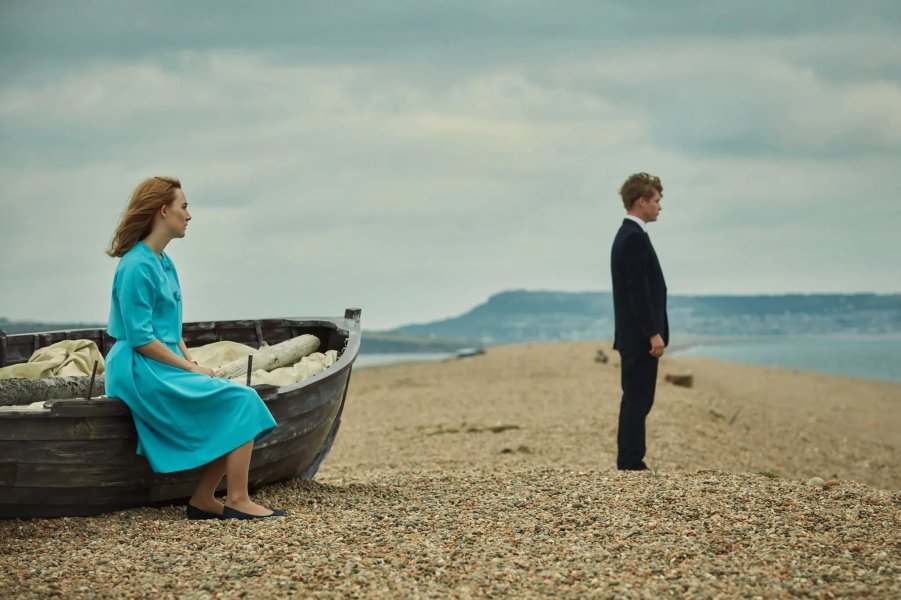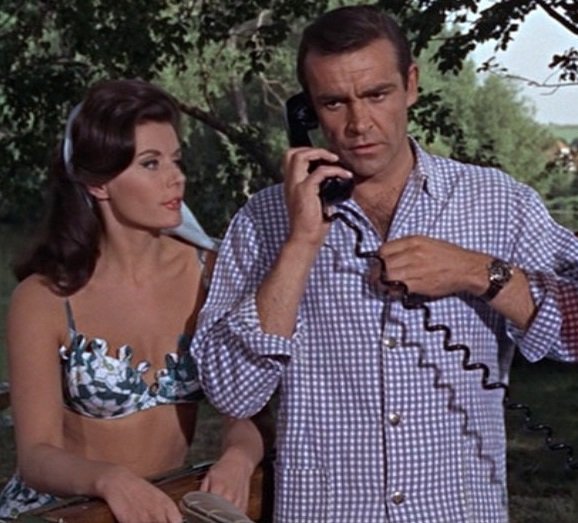FOXTROT LAMONT
One Too Many
- Messages
- 1,722
- Location
- St John's Wood, London UK
I promised meself I'd read Ish's book first, then the film. To this day held but not yet sorted.View attachment 603269
Remains of the Day from 1992 with Anthony Hopkins, Emma Thompson, James Fox and Christopher Reeve
It is hard to turn an outstanding book into an outstanding movie, but Ruth Prawer Jhabvala's screenplay of Kazuo Ishiguro's novel Remains of the Day, with James Ivory's deliberate directing, realized on screen a movie worthy of Ishiguro's subtle and moving novel.
A butler, the head of staff for a prominent English estate, sees being "in service" as a calling. Like his father before him, he has devoted his life to his work and has reached the pinnacle of his career, only to then, in the quietest way possible, have his values challenged.
Anthony Hopkins plays the perfect butler, Mr Stevenson, who, just prior to WWII, runs Lord Darlington's estate with firm and thoughtful leadership. Hopkins takes great pride in his position, in Darlington Hall and in the respect that Lord Darlington, himself, commands.
As a butler should, Hopkins has submerged his personal feelings beneath a surface equanimity. He runs the estate with complete efficiency so that Lord Darlington, played by James Fox, can, without disturbance, deal with the "important affairs of state."
Presented early on, Hopkins is a content man until very slowly his beliefs and decisions are called into question. The arrival of an attractive and strong-willed new housekeeper, played by Emma Thompson, is the first ripple.
Thompson is, like Hopkins, professional in her work, but she has a fire for something more out of life than just being "in service." When, tactfully, she alights upon Hopkins as the object of her affections, he brushes her romantic hints off with feigned professional obtuseness.
Amidst this low-burn attempted romance in his head staff, Fox, as Lord Darlington, is advancing those earlier noted "affairs of state." He fancies himself a diplomatic éminence grise trying to help England, in the late 1930s, negotiate a peace with Hitler's Germany.
Fox believes England and the Allies set such oppressive conditions for peace with Germany at the end of WWI that they did not act with honor and, thus, share the responsibility for the problems in Germany today.
All of this is seen through flashbacks as Remains of the Day opens in the 1950s with Hopkins meeting the new owner of Darlington Hall, a retired United States senator, played by Christopher Reeve.
Reeve had been the American representative at one of Fox's pre-war "conferences," where Reeve called Fox out on his naive view toward Germany and on his amateurism. Things have come full circle for Hopkins.
Nineteen-fifties Hopkins is a man who has somewhat lost his moorings. The now-deceased Fox, if remembered at all, is universally derided as a "Nazi sympathizer" or even traitor. It's hard to see your career in service to that man as being a success.
Perhaps a presently more "flexible" Hopkins will, at least, have a second chance at romance. Thompson has written to him that her marriage, she left Darlington Hall in the late 1930s to wed, has failed. On the pretext of wanting to rehire her, he takes a trip to see her.
The climax, no spoilers coming, is Hopkins reunion with Thompson. For Hopkins it is a last chance at romance. It is also a chance for him to come to terms with the man he was when Thompson first knew him and the man he has become.
Hopkins embodies the character of Mr. Stephens. Being "in service" was a calling for many back then. To have the tenets of that world smashed up, as quietly happened to Hopkins' character, is a shattering experience that the actor captures with incredible nuance.
Thompson is equally well cast as the "change agent" in Hopkins' life. At Darlington Hall, she tries to push him out of his celibate comfort zone. Thompkins, like Hopkins, has to show a lot of emotions - love, fear and heartbreak - with little outward display.
Fox, a man born to play an English Lord, is wonderful as an Englishman who acted with honor within his cultural framework. It was, though, a framework horribly out of step with the times.
You'll also want to catch Hugh Grant popping up in a small but fun role as Fox's upstart godson who sees how out of touch his sincere but obtuse godfather is.
Author Ishiguro layered in so many "small" stories - look for the brutal vignette about the Jewish maids or the sad end to Hopkins' father's life - that the two-plus hour movie requires several viewing to take everything in.
All of this subtly, and subtly is Remains' genius, is beautifully portrayed by director James Ivory's lush sets and locations, plus, his meticulous directing. Every scene and moment is there for a reason, even if it takes a few times to consciously see all the connections.
Remains of the Day is also an early example of a period movie working very hard to get the era's details right. Experts will, no doubt, find flaws, but the overall feel for the viewer is one of being transported to another time and place.
Through the life of one seemingly nondescript man, author Ishiguro manages to combine the disparate elements of a heartbreaking tale of a suppressed love with the story of a well-intentioned, but ultimately ignoble international appeasement of a genocidal regime.
Remains of the Day is a thoughtful, moving and poignant novel. Driven by a talented director, screenwriter and cast, the movie's greatest achievement is that it did not let this wonderful book down.
This review puts things in place for me swift sure approach.




